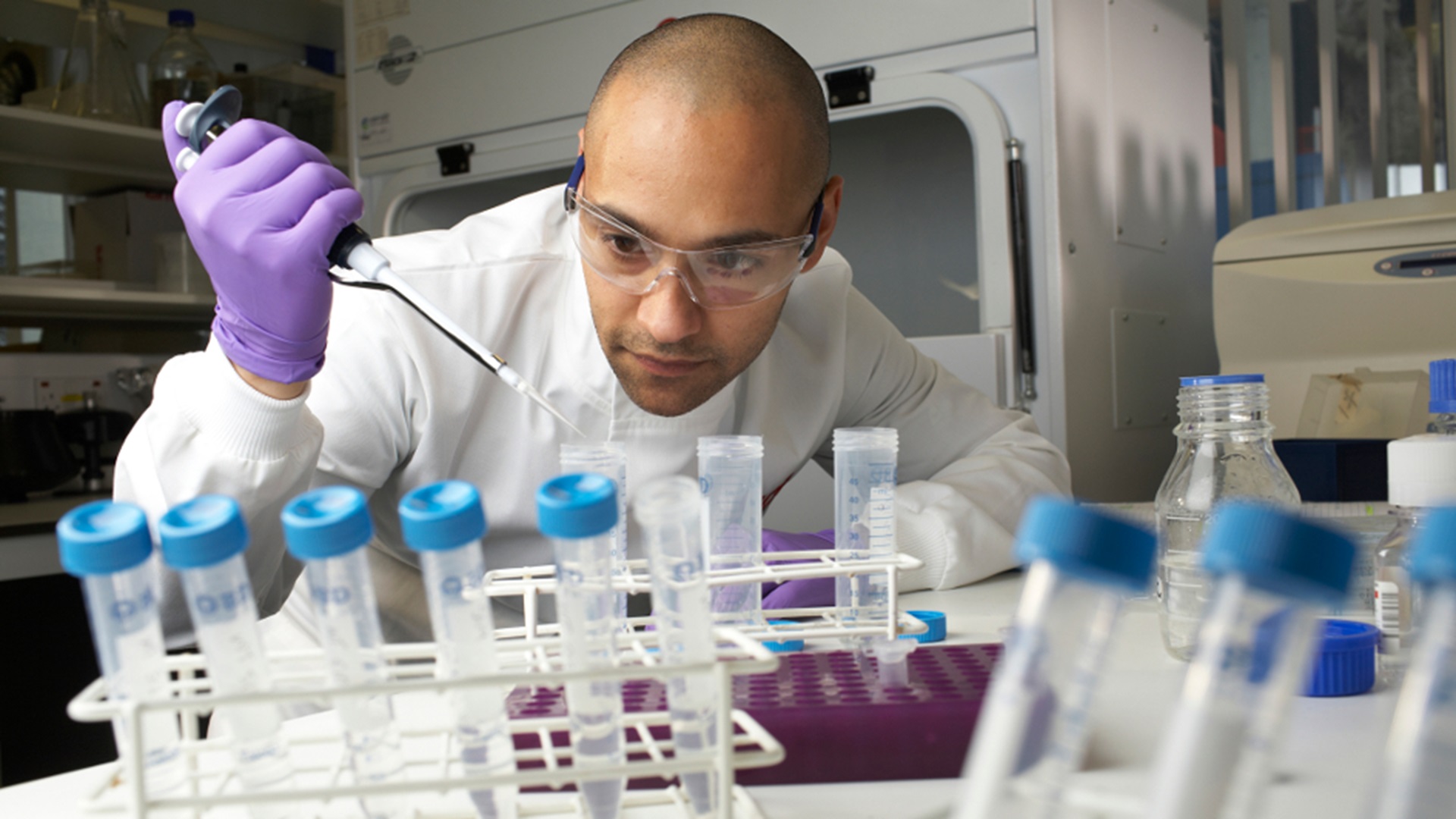
Opportunity: Cancer vaccines or immunotherapy to tackle drug resistance
Dr Stephen Pettitt
Additional lead scientists/inventors:
Professor Christopher Lord is Deputy Head of the Breast Cancer Now Toby Robins Research Centre and Leader of the Gene Function Team at the ICR.
Professor Alan Melcher leads the Centre for Translational Immunotherapy, which brings together experts from the ICR and our partner hospital, The Royal Marsden Hospital NHS Foundation Trust.
ICR lead scientists/inventors:
Additional lead scientists/inventors:
Dr Stephen Pettitt
Professor Christopher Lord is Deputy Head of the Breast Cancer Now Toby Robins Research Centre and Leader of the Gene Function Team at the ICR.
Professor Alan Melcher leads the Centre for Translational Immunotherapy, which brings together experts from the ICR and our partner hospital, The Royal Marsden Hospital NHS Foundation Trust.
Opportunity at a glance
The Institute of Cancer Research, London, is seeking a partner to collaborate on the development of anti-cancer vaccines and/or immunotherapeutic approaches to help overcome resistance to PARP inhibition or platinum-based chemotherapy.
More about cancer vaccines or immunotherapy to tackle drug resistance.
PARP inhibitors (PARPi) are used for the treatment of cancers with deficiencies in the homologous recombination (HR) DNA repair pathway, which can be due to defects in genes such as BRCA1, BRCA2, RAD51C, RAD51D and PALB2. Such defects are common in many different types of cancer – particularly ovarian, breast, prostate and pancreatic cancers. Four PARP inhibitors are now approved for treating certain types of cancers – with the potential to expand to more patients in the future. But drug resistance can emerge via several routes, including via reversion mutations that restore the function of HR genes.
Scientists at ICR are studying the emergence, prevention and treatment of resistance to PARPi or platinum-based chemotherapy in HR-defective cancers using established human and mouse T-cell priming assays, novel mouse models available in the group, clinical samples from cancer patients with reversion mutations, and mass-spectrometry approaches.
Reversion mutations
The team has discovered that drug-resistant cancers arising through reversion mutations that restore the function of defective HR genes often encode a new protein sequence (neoantigen) that could potentially be targeted using immunotherapy and/or vaccination approaches.
Unlike most other neoantigens under investigation for targeting in cancer, neoantigens associated with reversions offer the advantage that there is a tumour dependency on the reverted protein for survival.
Key Features
PARP inhibitors (PARPi) are used for the treatment of cancers with deficiencies in the homologous recombination (HR) DNA repair pathway, which can be due to defects in certain genes such as BRCA1 and BRCA2. However, resistance restricts clinical utility.
The Institute of Cancer Research (ICR) has filed a patent for vaccine-based therapy and immunotherapy for the prevention or treatment of certain drug-resistant cancers, following the discovery of neoantigens encoded by reversion mutations in HR genes that drive resistance to therapies such as PARPi.
We are now seeking a commercial partner to further develop the approach collaboratively for the prevention or treatment of drug resistance in HR-defective cancers.
Intellectual property
The ICR has filed an international patent application (PCT/EP2021/061184) covering anti-cancer vaccines and immunotherapies that mediate immune system-targeting to neoantigens encoded by reversion mutations that drive resistance to therapies such as PARPi or platinum-based chemotherapy.
Commercial Opportunity
We are seeking a commercial partner to further develop the approach collaboratively for the prevention or treatment of drug resistance in HR-defective cancers.
Key publications
Pettitt, SJ et al, Clinical BRCA1/2 Reversion Analysis Identifies Hotspot Mutations and Predicted Neoantigens Associated with Therapy Resistance. Cancer Discovery 2020;10(10). DOI: 10.1158/2159-8290.CD-19-1485
Contact us
The ICR’s interactions with industry partners are led by our Business and Innovation Office, which oversees a large portfolio of partnership and licensing opportunities across a range of oncology research.
Contact:
Jonathan Beech
Business Development Manager